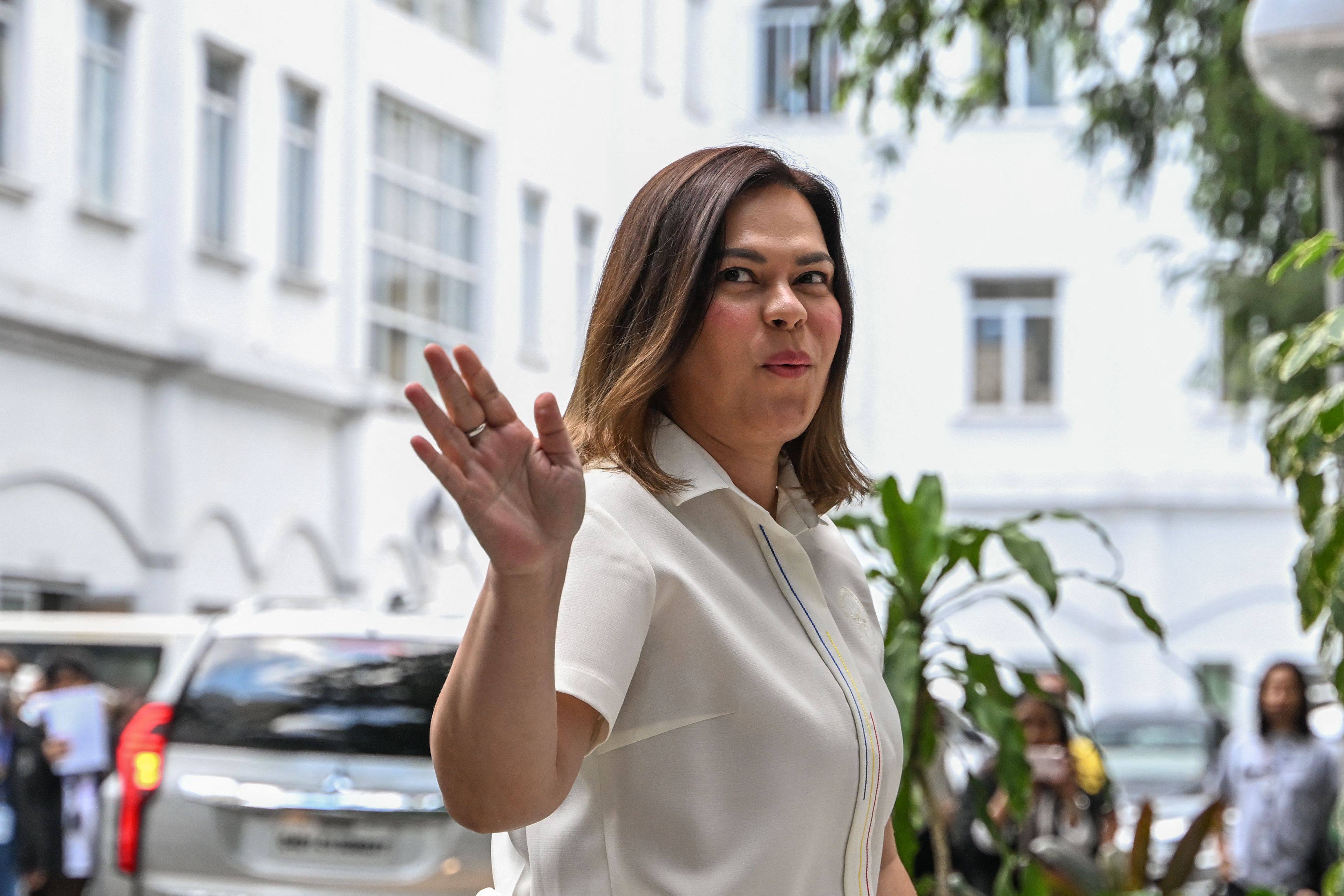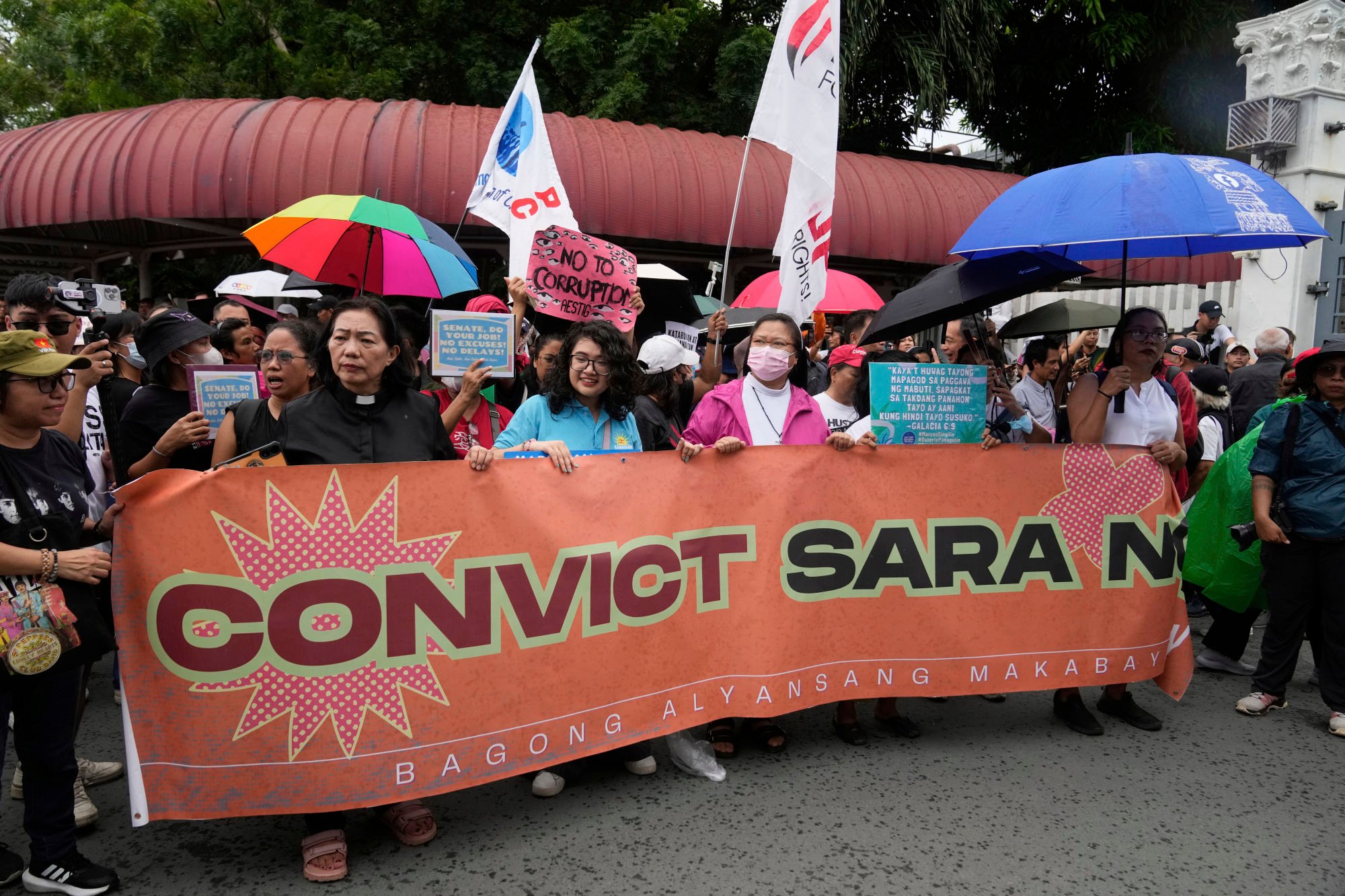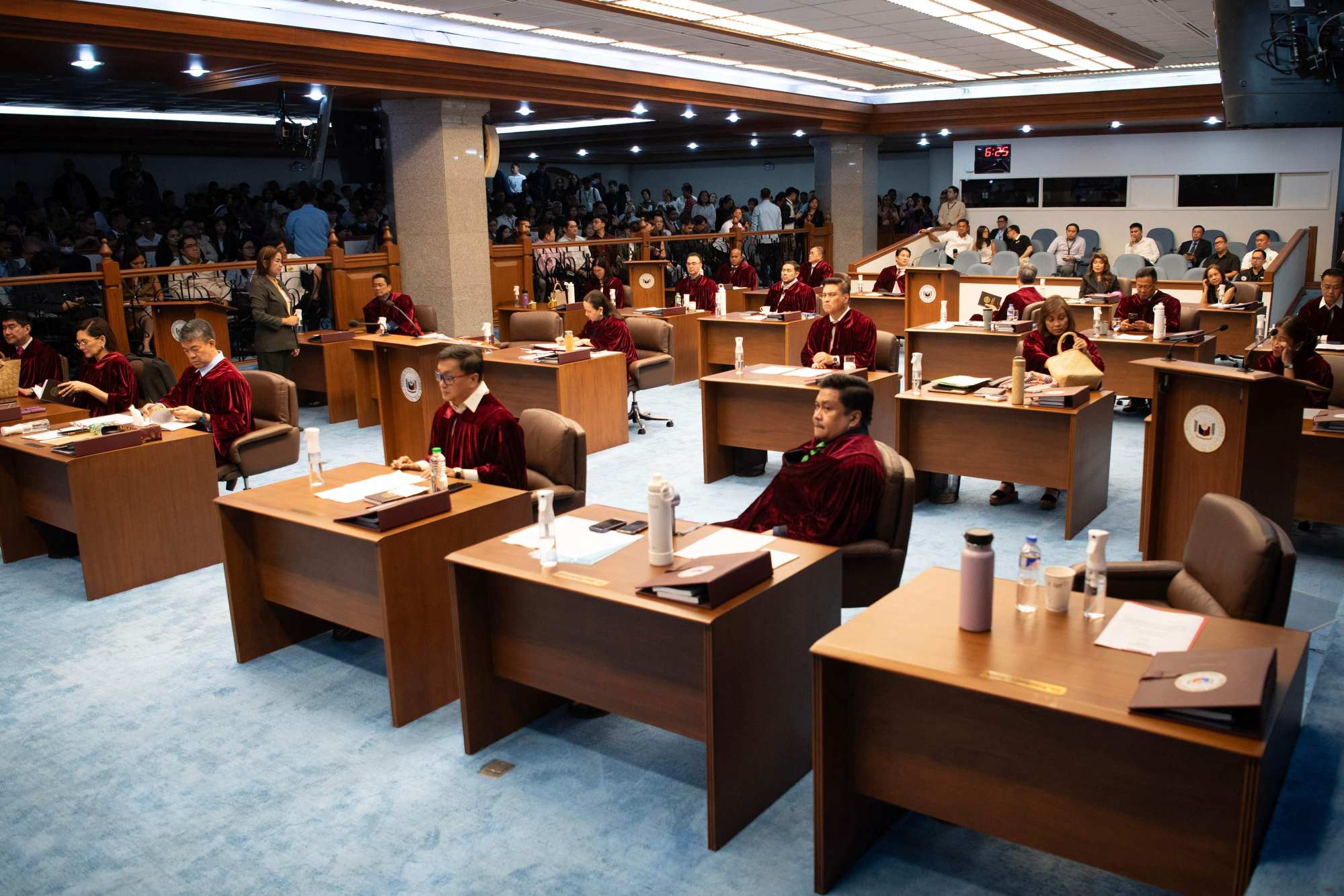Philippine court stops VP Sara Duterte’s impeachment on technicality
Legal experts dismayed as they warn voiding the trial over a procedural flaw prevents the public from seeing the ‘truth of the charges’

The Philippine Supreme Court has derailed the impeachment trial of Vice-President Sara Duterte-Carpio over a procedural flaw, a landmark ruling that legal observers warn avoids the substance of the allegations and risks leaving the public with more questions than answers.
In a unanimous 15–0 ruling delivered on Friday, the court found that the impeachment complaint endorsed by the House earlier this year violated the “one-year rule” under the 1987 constitution, which prohibits multiple impeachment proceedings against the same official within a 12-month period.
While both chambers of Congress said they would not appeal against the decision, the House of Representatives immediately vowed to refile the impeachment complaint early next year.
The full ruling has yet to be released, but court spokeswoman Camille Ting said the justices concluded that due process “applies during all stages of the impeachment process” and reminded the House that “there is a right way to do the right things at the right time”.
“Our fundamental law is clear. The end of it does not justify the means,” Ting quoted the court as saying.
She did not elaborate on how the House had run afoul of the one-year rule, but said the violation meant the Senate “could not acquire jurisdiction over the impeachment proceedings”.
The court – which included 12 justices appointed by former president Rodrigo Duterte – emphasised that its ruling did not absolve Duterte-Carpio of the charges against her. However, it said any future impeachment complaint could only be filed starting February 6, 2026.
The decision, which effectively blocked the Senate trial before it could begin, was in favour of Duterte-Carpio’s petition to nullify the process. She had argued that the Lower House violated constitutional procedure when it transmitted the verified complaint to the Senate.
The 1987 charter states: “No impeachment proceedings shall be initiated against the same official more than once within a period of one year.”
Duterte-Carpio’s petition argued that when the first three impeachment complaints were filed by citizens in December 2024, and were “verified” and endorsed by a handful of congressmen, that already initiated the “impeachment proceedings”.
A fourth “verified complaint” was filed on February 5 and this time, it was endorsed by 215 out of the 306 sitting congressmen by means of a House Resolution.
Under the constitution, if “at least one-third of all the Members of the House” file the verified complaint or endorse the same through a House Resolution, “the same shall constitute the Articles of Impeachment, and trial by the Senate shall forthwith proceed”.
Unhandled type: inline-plus-widget {“type”:”inline-plus-widget”}
The Supreme Court ruled that as the first three complaints had initiated the “impeachment proceedings”, the fourth complaint that was later transmitted to the Senate in February was null and void.

‘What now?’
The House issued a statement saying it respected the court and the ruling, but “our constitutional duty to uphold truth and accountability does not end here”.
The statement added: “The impeachment process is not just a legal mechanism – it is a vital democratic safeguard. To allow judicial interference in the initiation of this process risks undermining the very principle of checks and balances. Impeachment is a political act rooted in the people’s will – no legal technicality should silence it.”
Senate spokesman Regie Tongol said the ruling “validates the prudence and restraint exercised by the Senate majority in recognising those legal uncertainties from the outset”.
The vice-president’s defence team welcomed the ruling as affirming their contention that the fourth impeachment complaint was “constitutionally infirm”. The decision “upheld the rule of law and reinforced the constitutional limits against abuse of the impeachment process”, the team’s statement added.

Many legal experts, however, were dismayed at the ruling. Among them was University of the Philippines criminal law professor Barry Gutierrez, a former congressman.
“Barring the trial on a procedural issue will likely raise more questions than it answers,” Gutierrez told This Week in Asia.
“It prevents the public from seeing for themselves the truth of the charges against the VP. The allegations will linger, unresolved, and the question many will ask is: what now?”
He said a motion for reconsideration could be filed, although it was “unlikely to change the outcome” of the ruling. Another option was to refile the impeachment complaint after the one-year lapse.
Gutierrez said he was “curious” how the court considered the first three complaints as the “initiated complaint”.
He cited the 2003 case of Francisco vs the House of Representatives, where he said the Supreme Court “ruled that initiation requires referral to the [House] Committee on Justice, which did not happen [in this case] with any of the first three complaints here”.
Senator Risa Hontiveros did not mince words, saying in a statement that “with all due respect, this sudden blocking of the impeachment trial of VP Sara Duterte is dismaying”.